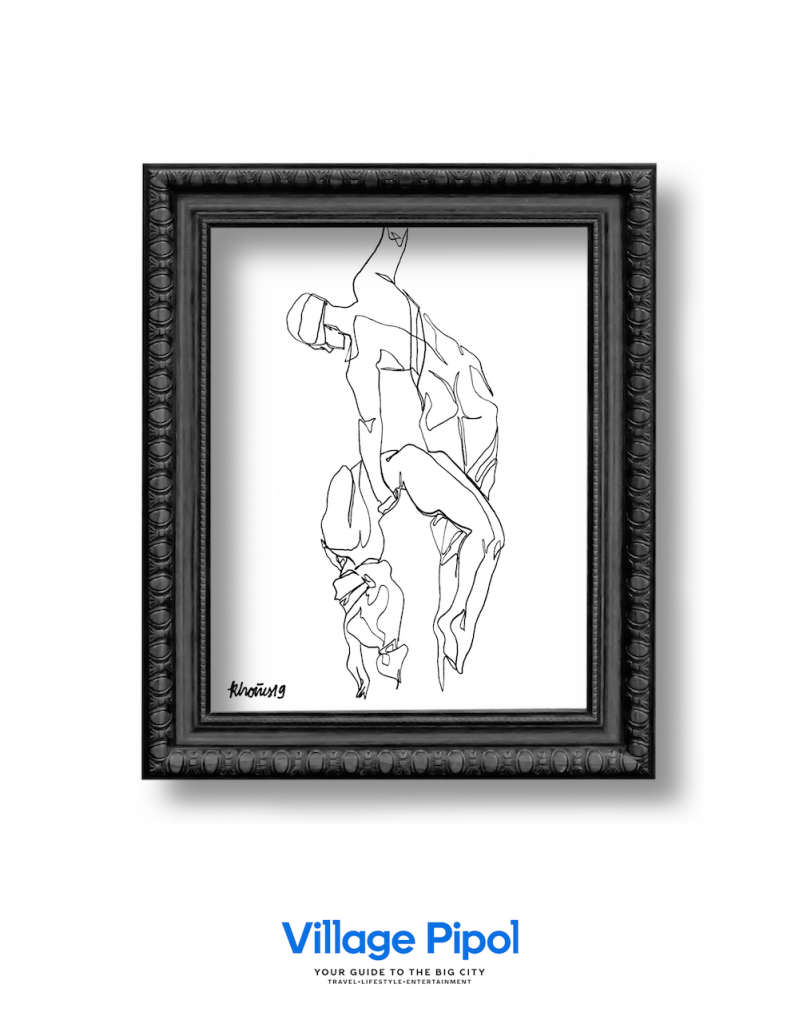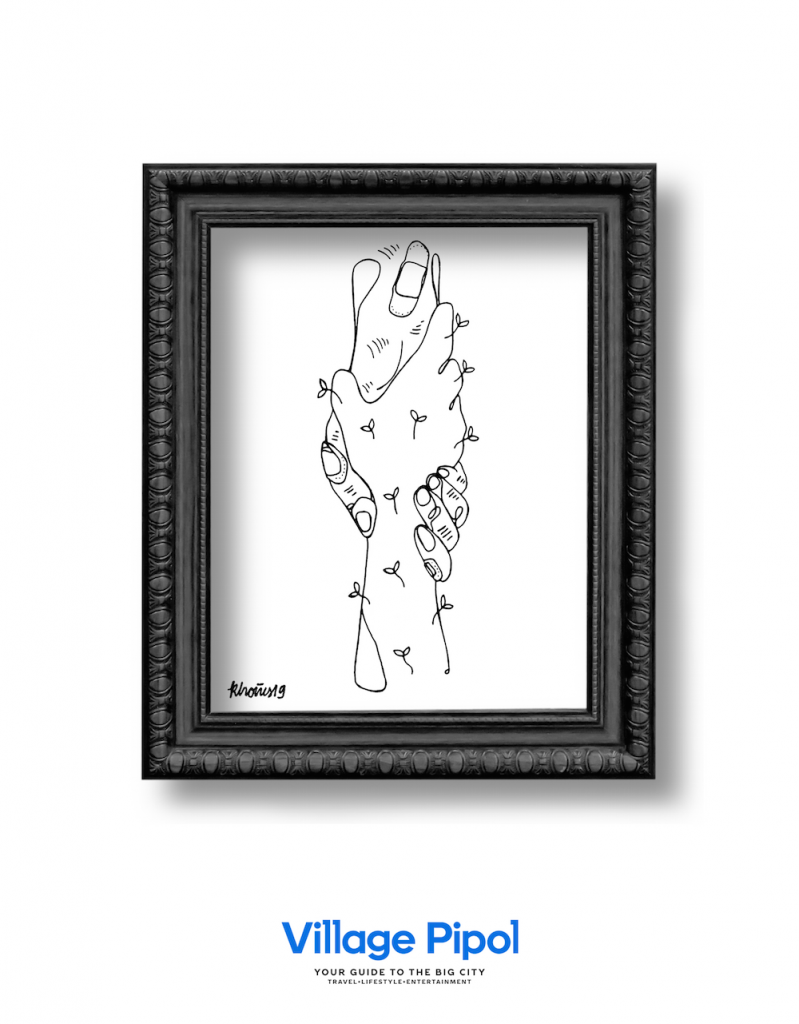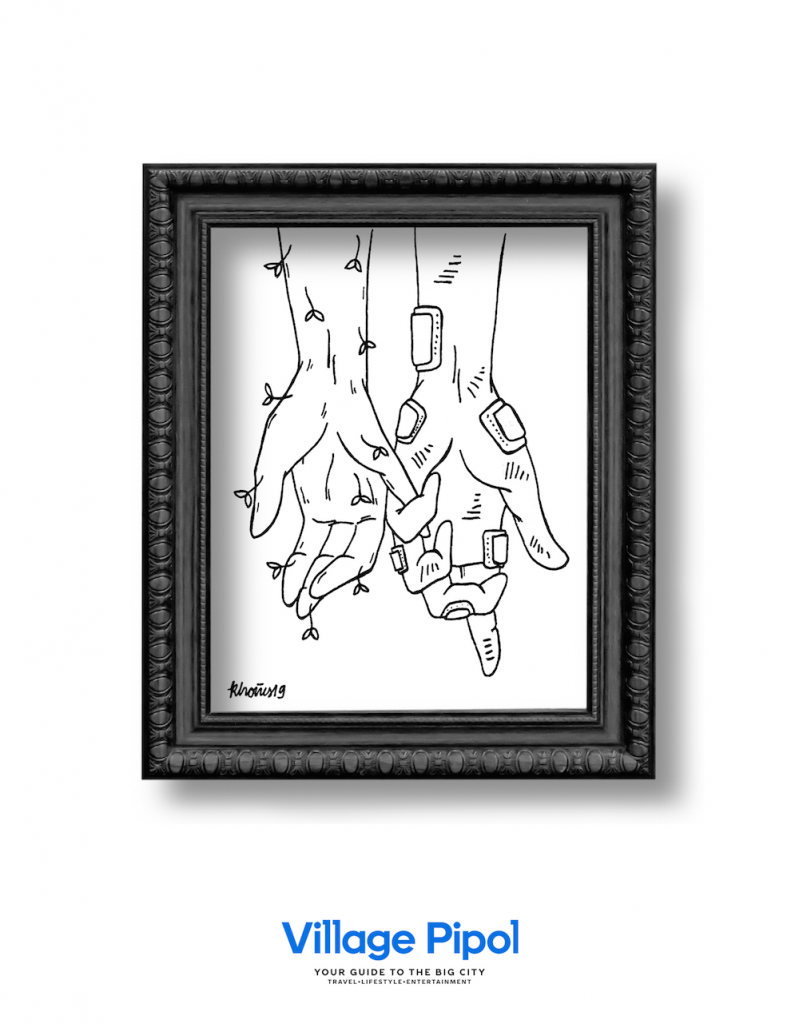In a divided & chaotic world, always choose empathy

History tells us that humankind suffered innumerable catastrophes, decade-long wars, deadly pandemics, and humanitarian crises — but the human race remains adaptable and resilient. We, humans, always have this positive adaptation despite adversity and changes, and, mercifully, this helps us survive through thick and thin. But more than resilience and flexibility, our race continues to rule and persist through the presence of empathy, a commonly downplayed moral attribute.
Empathy is how we connect, react, support one other. It is basically putting yourself in someone else’s position, feeling what they must be feeling, and lastly, responding appropriately to the situation.

Imagine a world where empathy is deemed as an essential character to uphold. Imagine people show a willingness to share and care about what other people feel. Imagine people significantly reduce unconscious biases and ignore racial inequality by putting themselves in another person’s shoes. Imagine people starting to improve their real-life interactions with people who have different views from them. Imagine leaders making an effort to see their people’s point of view, and try to create concessions and solutions. Imagine a better world with empathy. In today’s chaotic and divided world, we all need to choose empathy.

Empathy can broaden our worldview and help us to relate more to others. We, humans, are social animals, and in a world of diversity and conflicting views, it is important to effectively relate to others’ emotional reality. We all have our own stories to tell, struggles to endure, and victories to celebrate hence empathy is essential for our interconnectivity. Having the ability to emotionally understand what people feel, view things from their own point of view, and recognize the presence of a range of experiences, capacities, and incapacities lead to more helping behavior.
We all need empathy, especially now
We, Filipinos, are in a battle every single day… against the coronavirus pandemic, against the police brutality in the country, against the inequality and discrimination every minority faces, and even against the closure of a huge media corporation that leads to thousands of people in danger of losing their jobs and livelihoods.

We are in a battle for empathy.
Scientifically, everyone has the ability to identify and understand other people’s emotions. Empathy has deep roots in our brains, bodies, and even our evolutionary history. In this pandemic, empathy is exhausting to exercise but essential to have. Empathy eases tension that comes with change and it can help a leader navigate conflict. Truthfully, when a leader is short on empathy, the people become doubtful.

It’s easy to say, ‘It’s not my job, not my community, not my world, not my problem.’ COVID-19 and the rising unemployment rate demand our kindness and compassion to our fellow citizens. We are faced with a new normal, our daunting reality. The pandemic becomes evident as our daily lives go increasingly altered. Now, there is an absolute need for us to act heroically with empathy.
Aside from the pandemic, Filipinos are fighting another battle
The unemployment rate in the Philippines jumped to 17.7% in June 2020 from 5.1% in the same quarter in 2019. Statistically speaking, this became the highest jobless rate on record amid the ongoing COVID-19 pandemic that led to an economic shutdown. 7.3-million Filipinos remain jobless, unable to provide food and necessities to their families. This number has yet to even include the people who will lose their jobs as ABS-CBN shut down their broadcasting stations.

ABS-CBN shutdown will worsen the Philippines ’ state of unemployment. A labor group even tagged the shutdown as “not just an act to curtail press freedom but an attack against the livelihood of more than 11,000 workers of the network.” Were they wrong, though? Aside from that, these 11,000 people undergo the torture of uncertainty over the future of their job security. At this point, it doesn’t even matter whether or not ABS-CBN executives did something unlawful.
Don’t these decision-makers remember that we are currently in a pandemic? The welfare of the company’s employees must have been made as to the media executives and government official’s top priority. Empathy should have been present when decision-makers come into the resolution to close down a giant corporation. One decision has a ripple effect that could heavily impact others that are not even included in the 11,000 counted workers.

These 11,000 workers must have had families to feed, children to educate, and people to protect from the deadly virus. They would need food, protective masks, and a Wi-Fi connection for the online classes. With no job or a salary to keep them afloat, they wouldn’t be able to get any of those. Households in the Philippines consist of an average of 4.8 people. Mathematically and hypothetically speaking, the shutdown endangers the life of not only 11,000 people but 52,800 overall.
We need to empathize more rather than just sympathize
Today, especially in this time of pandemic and human rights crises, empathy is essential. The pandemic has already brought out the worst in this country as we witness rising hostility, fear, frustration, and even violence stoked by inequality and discrimination. In times of emergency, providing empathy is the single most important factor if we want to survive such a disaster. It could limit suffering, protect the vulnerable and it could help a community to quickly recover from in the aftermath of such a crisis.

Now, more than ever, people need to boost their social connectedness and focus on their helping behaviors. We need to recognize someone’s pain and struggle and find ways to support them. We need to empathize more rather than just sympathize. Let’s give ourselves a sense of fulfillment, control, and empowerment by listening and helping others in need. Empathy, on a very basic level, is what makes us human.
Connection, not separation, and impractical disconnection. The clock is ticking.
Produced by Jim Reynold Zamora & Angela Baltan
Illustrations by Kent Harley Oñes





